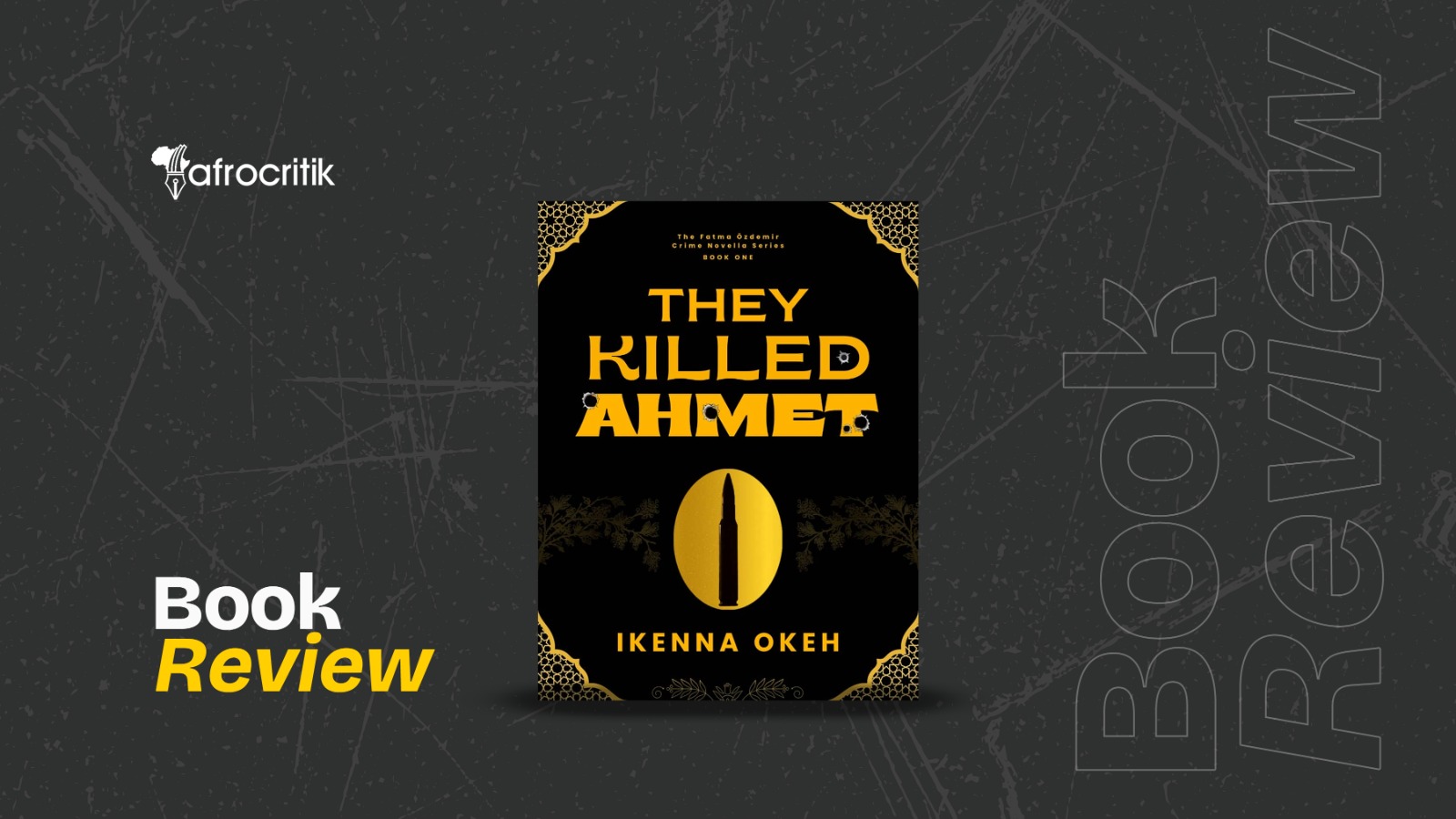They Killed Ahmet is majorly sustained by clipped dialogue, which is many times over-burdened with explanations. In short, actions in the novel are a little too over-explained, which detracts from the novel’s pacy prose and fast-moving chapters.
By Chimezie Chika
The setting is Istanbul, Türkiye’s bustling international city, in one of its hilly neighbourhoods. A man has just murdered his partner by throwing her from their second-floor apartment. At the police offices, a brilliant new police academy graduate, Fatma Ozdemir, is assigned to the case, despite being both a novice and a woman in an occupation dominated by men.
At this stage in Ikenna Okeh’s fast-paced novella, They Killed Ahmet, the facts of the case that propel the story appear fairly straightforward to the reader: the murder was committed by a man, so the assailant’s identity appears to be known even if he is at large, a seemingly inexperienced detective is on the case; and the city is deeply crime-ridden. What remains, it appears, is to find the culprit and uncover the motive. The stage, for the reader, seems perfectly set for an engaging, if straightforward, police procedural.
This is not how it plays out, however, and not because the work is enriched with more complexity. If anything, the simplistic premise begins to get more and more simple and less and less explicable. As Fatma Ozdemir begins to investigate the murder case, she encounters problems almost right away.

First, she is taken off the case. After reconnecting with her ex-boyfriend, Collins, a Nigerian, the investigation opens up a further can of worms, drawing her into the underworld of Turkish crime, where vendetta and ruthlessness reign. In a plot that goes from an initial detached murder to other murders (including that of the titular character, who is Fatma’s partner in the police force) and attempted murders that affect Fatima’s life directly, we glean flashes of fictional promise and suspense that nonetheless fizzles before they have any chance to colonise our attention.
This is, in essence, a trope-embracing piece of detective fiction. Yet, beneath the familiar chase for the culprit that defines a classic whodunit, They Killed Ahmet carries an undercurrent of feminist concerns, of which Fatma Ozdemir herself, and her case, feature prominently. Right off the bat, Fatma meets opposition from a male colleague who thinks the job should be his, not hers.
Throughout They Killed Ahmet, we are shown several instances of men treating her with less regard for being a woman, albeit a police officer. The case of the murdered woman gradually becomes a personal one for Fatma—until the plot veers off course, shifting its focus from the murder to the killer’s involvement in a vast money-laundering syndicate orchestrated by some of the city’s most powerful organised crime groups.
It’s interesting that this revelation did not come with some hard-boiled action, as one would expect, but from a conversation between Fatma and her Russian uncle, Pavlov. This is doubtless one of the problems of Okeh’s work.
Okeh’s They Killed Ahmet deals in Hollywoody stereotypes and stock characters. Every trope in the stable appears here: the Russian mafia, Syrian and Iranian crime syndicates, and so on. In a good way, the novel shows Istanbul’s cosmopolitan whirlpool in which all sorts of nationalities occupy their own cultural—and crime—bubble. Okeh’s Istanbul is peopled with Turks, Nigerians, Russians, Kazakhs, Uzbeks, Syrians, amongst others.

Nigerian characters appear both in crime and, through Collins, in the one good light. The Nigerian diaspora in Türkiye is a sizeable one, with Istanbul—the ancient multicultural city—being the epicentre for Nigerian expatriates. It is not too hard to find news of internet crime syndicates involving Nigerians in that country. It is also not at all hard to find honest Nigerians making an honest living in the same country. In short, to all intents and purposes, you are more likely to find the latter.
Ikenna Okeh is particularly well-placed for this—for writing a potpourri of nationalities—having lived in Türkiye for many years. He seems to know the country well enough and appears to understand Istanbul’s situation as a crossroads of cultures.
In many ways, They Killed Ahmet is a kind of Istanbul noir. It offers something resembling a rough blend of Raymond Chandler–style hardboiled crime fiction with a touch of Nigerian crime intrigue reminiscent of Dibia Humphrey’s A Drop of Mercy, the Longman Drumbeat series novel that remains one of the finest examples of Nigerian crime fiction.
They Killed Ahmet is majorly sustained by clipped dialogue, which is many times over-burdened with explanations. In short, actions in the novel are a little too over-explained, which detracts from the novel’s pacy prose and fast-moving chapters. The prose can be redundantly awkward: “Like a well-fed skeleton in the midst of well-fed others, it stood up”.
The values of a less chaotic plot would have enriched this work. The kind of implausibilities that abound here (an example in this novel is the contrived impetus for Fatma’s mechanic workshop break-in) are not new territory in hard-boiled crime. This is the thing with characters here; they operate only on the surface. Ahmet Salman’s sudden shift from a cautious man to someone thrilled by danger makes little sense; the abnormality lies in the fact that such a drastic volte-face is not justified as character growth.

The author’s tendency to relapse into passive voice can be frustrating, though this may not exactly stop a typical reader, given the fast pace. Yet it’s easy to see that this story would have worked much better with a more active voice.
The concluding sequences that follow Ahmet’s assassination, which typically should have the reader on the edge of his seat, hardly does that. A lot of that fault can be levied against Okeh’s prosaic insistence on conjectural action rather than real action. That is, action that happens through future projections characters make in the dialogue. It’s an easy way out for a writer, and it is irksome. As a result, Okeh’s resolutions are either too simple and tidy to make much sense or leave us hanging.
The good thing about this novel is that it makes no pretenses at being more than what it is, which is a page-turning piece of detective thriller geared towards the provocation of pleasure and adrenaline. Though far from perfect, Okeh manages to maintain a measure of substance at key moments. As detective fiction goes, did They Killed Ahmet fulfil its promise? I would hazard that it didn’t do too badly.
Chimezie Chika is a staff writer at Afrocritik. His short stories and essays have appeared in or forthcoming from, amongst other places, The Weganda Review, The Republic, The Iowa Review, Terrain.org, Isele Magazine, Lolwe, Fahmidan Journal, Efiko Magazine, Dappled Things, and Channel Magazine. He is the fiction editor of Ngiga Review. His interests range from culture, history, to art, literature, and the environment. You can find him on X @chimeziechika1



